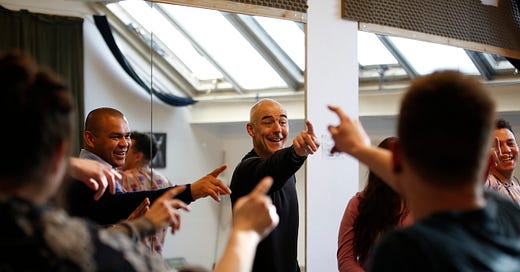The Culture Interview – Duncan Alldridge, ‘Improv’ teacher, writer, performer.
Author of ‘Losing It: How We Popped Our Cherry Over the Last 80 Years’, Kate Monro has been taking Duncan Alldridge’s ‘improv’ classes ‘Playing on the Edge’. She described the experience as being ‘transformational’ in terms of her life.
Author of ‘Losing It: How We Popped Our Cherry Over the Last 80 Years’, Kate Monro has been taking Duncan Alldridge’s ‘improv’ classes ‘Playing on the Edge’. She described the experience as being ‘transformational’ in terms of her life. Here she decides to ask her teacher some questions.
It is surely no mistake that every time I try and text the word ‘im…
Keep reading with a 7-day free trial
Subscribe to Advantages of Age to keep reading this post and get 7 days of free access to the full post archives.




